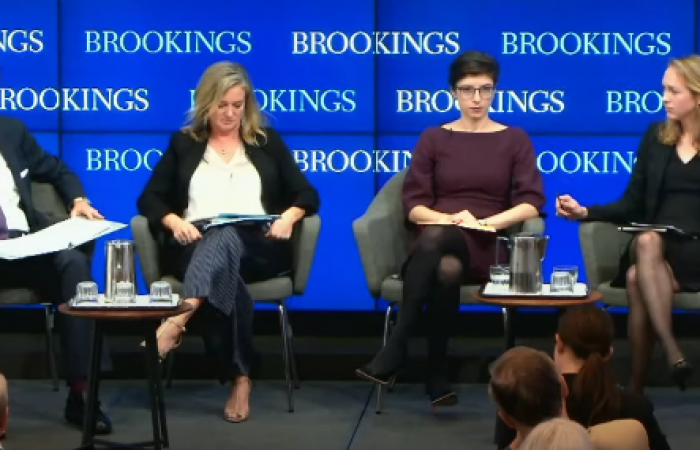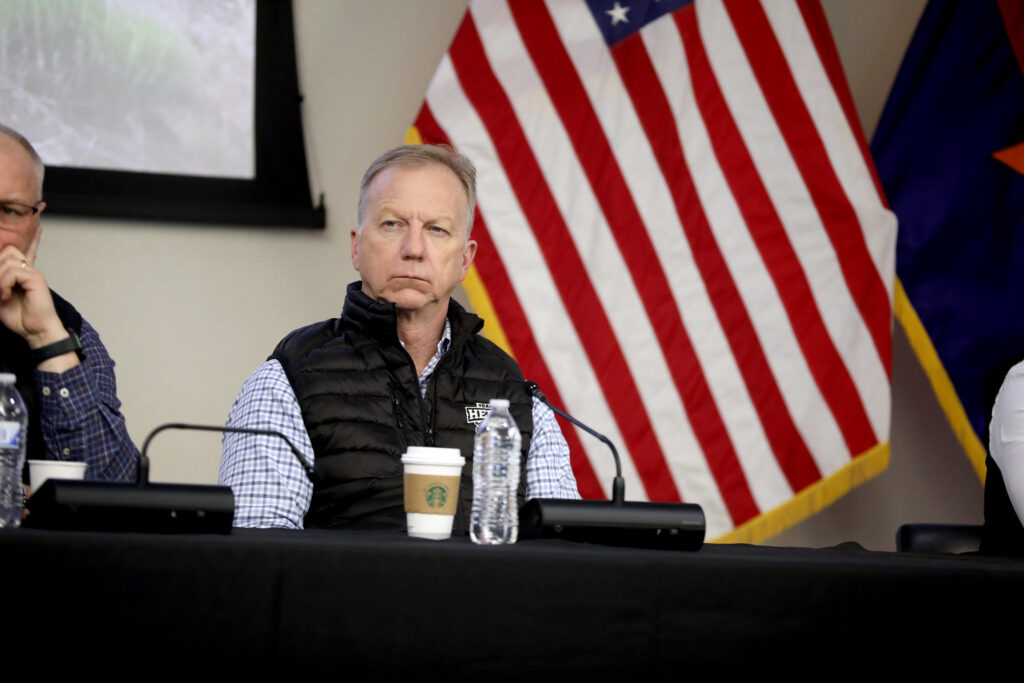Led by a keynote from Senator Ben Cardin, Brookings hosted a panel discussion surrounding their publication of ‘The Democracy Playbook.’ 30 years after the fall of the Berlin Wall, illiberalism is starting to make a comeback. In their 100 page report, Brookings’ scholars emphasize key suggestions for restoring democracy around the world. Regulating social media – without censoring the freedom of speech – was a key topic (among many others).
Keynote: Senator Ben Cardin
Senate Cardin led off the event with keynote remarks that democracy does not arc upwards forever. Despite that NATO was established to counter Russian influence, NATO partners like Turkey (and Hungary) show rising illiberal influence. Turkey, for example, has established a military alliance with Russia, attacked Syria, jailed journalists, closed media outlets, and used executive authority to rewrite the constitution. He highlighted that generally, illiberal states try to:
- End judicial review.
- Close and/or control the message.
- Identify dissidents as out of touch elites.
Here’s how he thinks we (the U.S.) should protect democracy around the world:
- Use sanctions against human rights violators.
- Develop stronger tools against corruption, such as anti-bribery laws and judiciaries.
- Put more of our foreign investment money into democracy building.
- Block arms sales to countries that use those arms against their own people
- Counter illiberal propaganda.
- Support civil societies in countries around the world.
- Get out own house in order.
Panel Discussion
Norman Eisen (moderator) Senior Fellow, Governance Studies
Susan Corke Senior Fellow, German Marshall Fund
Alina Polyakova Director, Project on Global Democracy and Emerging Technology
Torrey Taussig Nonresident Fellow, Foreign Policy, Center on the U.S. and Europe
Q: In 1989, the fall of the Berlin Wall was celebrated as a free and open Europe. People were ecstatic and hopeful. How did we get here?
Torrey explained how the past decade or two has shown us rises in illiberalism and erosion of citizen trust in democratic institutions and that, despite this, the 1989 democratic project has not failed. It is on-going, and it was a mistake to think that democracy would march on without constant work.
Alina talked about how we had gotten lost in the euphoria of the 90s and assumed this was linear, despite that these processes come in ebbs and flows. These illiberal political movements had not come out of the blue; we were not paying attention. “Now we must.” She then turned to a positive note, saying that despite that some countries’ federal governments have seen the election of populist party majorities, many local governments have seen the election of opposition parties, which provides some check and balance.
Susan emphasized that Democracy is a process, not an end state. She highlighted as an example the 2008 financial crisis, which showed that the roots of democracy were not deep and that the “elites” have become removed from the populous and their hardships, especially resulting from inequality. There is already a strong, multilateral foundation to work from. Those of this foundation, she pushed, must prove that democracy works.
Torrey ended the question by using a metaphor to describe how democracy rests in the hands of the people, and then positing that we should focus less on promoting democracy broadly and more on empowering those who are already trying to make change.
Q: How do we address digital authoritarianism?
Alina noted that their project will focus on this in the 2nd edition of the democracy playbook. That said, she still discussed how open information and open social media are important, and that a growing problem to address immediately is the real cyber and social media attacks from China and Russia. Other groups – such as other illiberal nations and extremist groups – are following suit and starting to normalize their radical images online.
Q: What is the role of the private sector – specifically, social media companies?
Torrey believes that there is a huge role for private industry, discussing how we typically think of NGOs and charities helping around the world, but that businesses, think tanks, and universities all also have major roles to play. Social media companies have an especially big responsibility, which they are not stepping up to.
Alina especially challenged social media companies to get involved in the conversation, but that this conversation must tread a line, so that we do not, ourselves, trend towards censorship.




